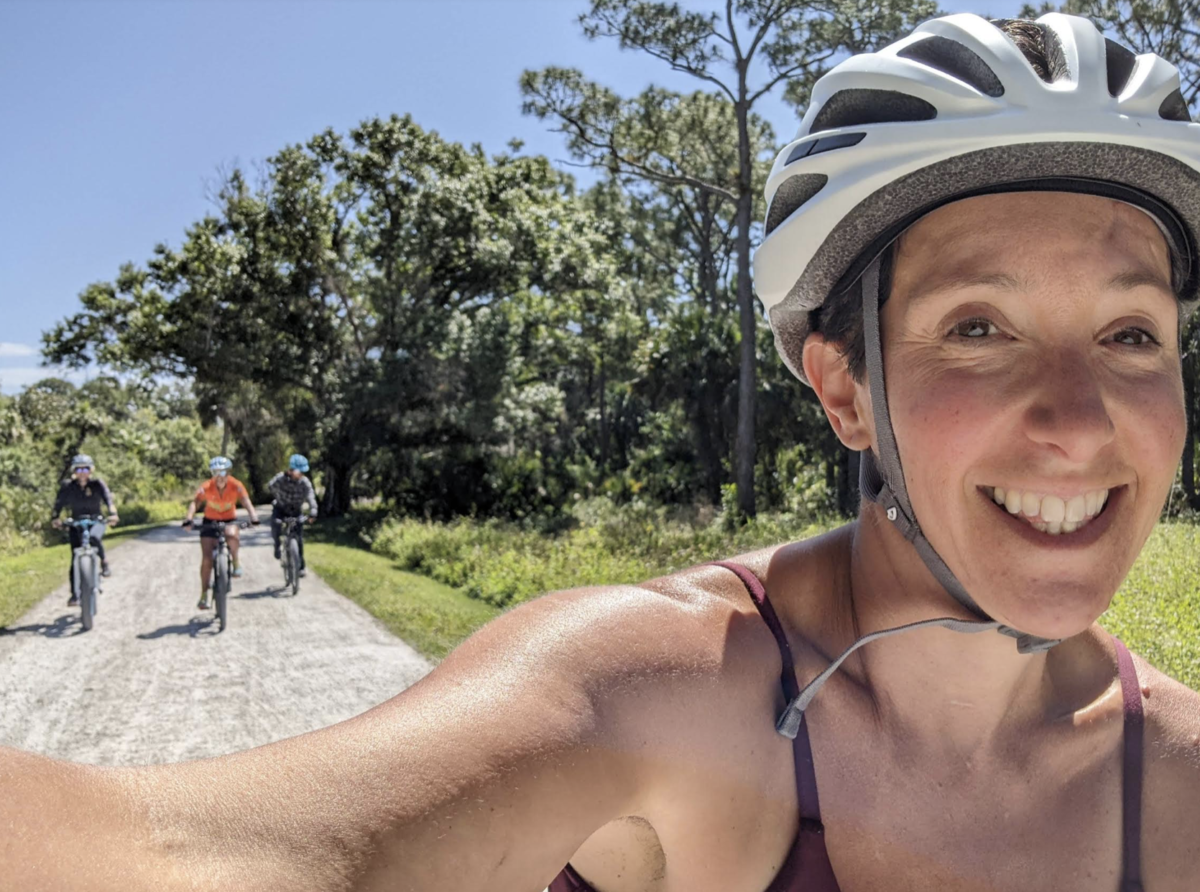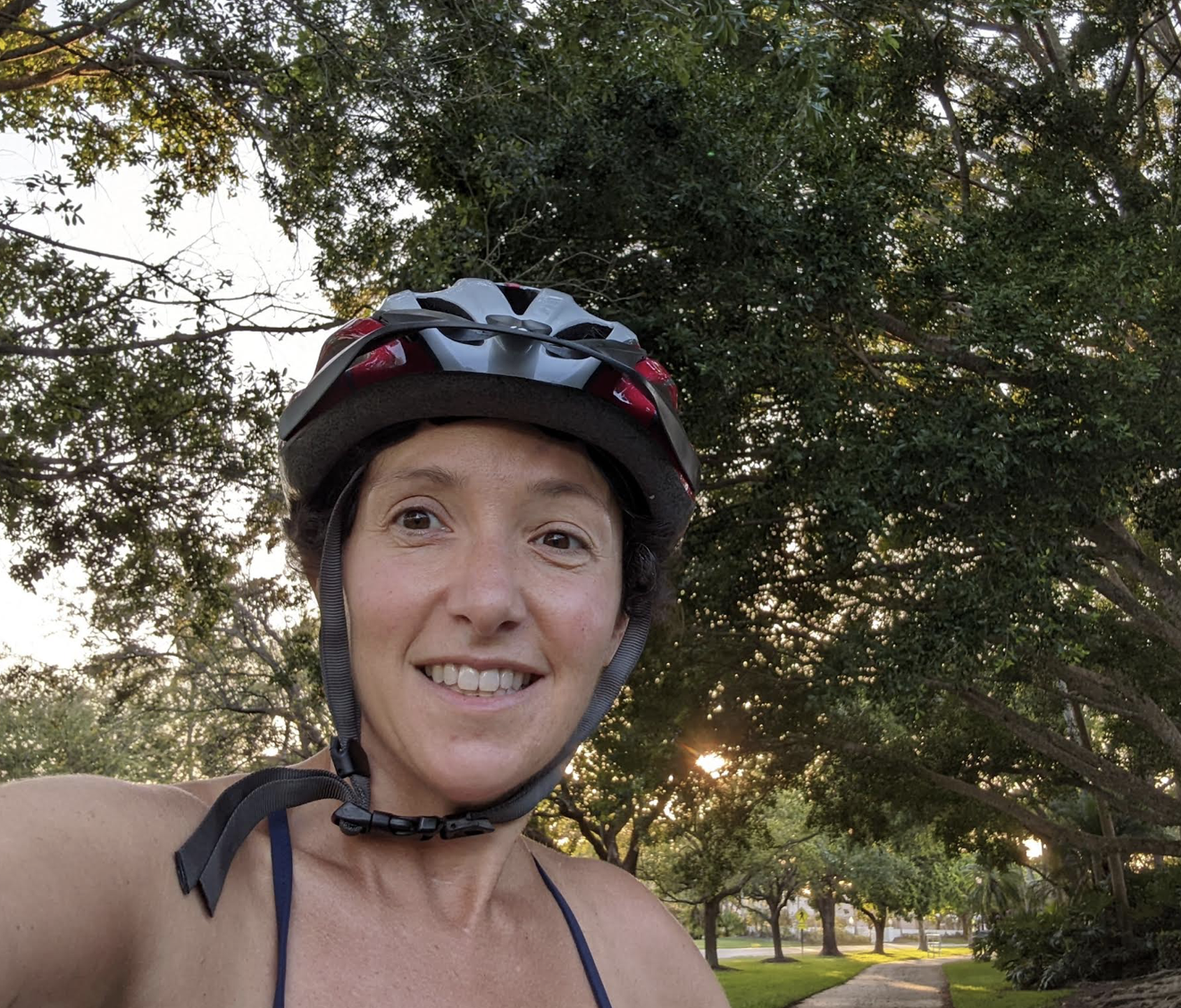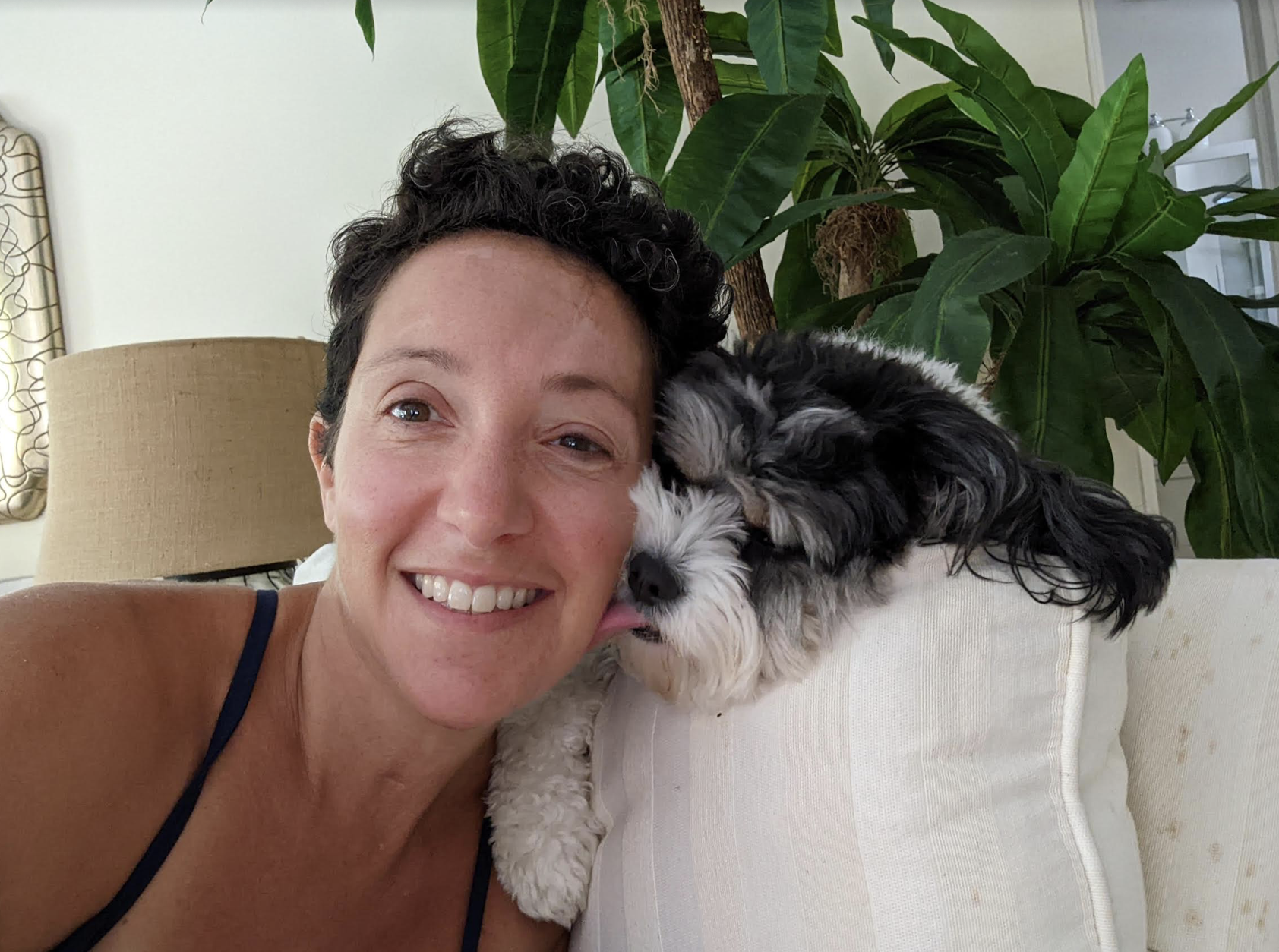
“My goal is to inspire people.”
— Lindsay Caron
When Lindsay Caron became the victim of a hit-and-run last year in San Diego, the prognosis looked grim. The former Portlander known to many in our local bike scene was unresponsive and spent weeks in a state of medically-induced coma most people never recover from.
But a little over a year later, Lindsay is not only responsive and out of the hospital – she is, miraculously, back on the seat of her bike. And she’s ready to use her experience to advocate for both bike safety and neuroscience research – two fields that converge more easily than you might think.
Lindsay shared her story with me during a phone call last week.
Lindsay was riding in the Pacific Beach neighborhood, a part of the city notoriously dangerous for cycling, when someone driving an SUV hit her from behind. The driver fled the scene, leaving her on the asphalt face-down and in critical condition. (“It’s not like he didn’t know. Part of his bumper fell off. Who hits and runs?” she said of the driver, who authorities have since caught.)
Lindsay has no memory of that day or the months that followed. And that’s a good thing because doctors kept her locked to a hospital bed for five months to recover from multiple brain surgeries.
Advertisement


Despite the trauma she’s been through, Lindsay sounded remarkably self-assured. She credits some of her recovery to this persevering attitude, and she wants her story to encourage patients, their families and medical staff, who she thinks could benefit from more hopeful determination.
“My goal is to inspire people,” Lindsay says. “If someone’s given a death sentence, people are often like, ‘Oh, well, nothing’s going to work.’ I want to tell them that some people have survived.”
In a video she posted to YouTube last month, Lindsay explained how she had a “shockingly dangerous” Glasgow Coma Scale score of three. According to research, up to 89% of people who face that level of vegetative state die within 30 days.
“I’m hoping to find a neuroscientist who wants to research why the heck I’ve healed so well so we can give that solution to others,” Lindsay says. “It’s a new science. There’s a lot to learn.”
Since head injuries are relatively common results of serious bike crashes, Caron wants to forge a stronger connection between bike advocates and neuroscientists who work with traumatic brain injury (TBI) survivors.
“There’s probably overlap between those two groups,” Lindsay says.
In fact, one person exemplifying this overlap is Portland Congressman Earl Blumenauer who co-chairs both the Congressional Bike Caucus and the Congressional Neuroscience Caucus. We haven’t seen a direct link from Blumenauer’s office on these two issues, but Caron says it might happen someday.
“When I’m biking, I feel like it’s the happiest thing ever and everything is so beautiful. Then I’m also like, ‘Hey, do you see me? Do you see me?”
Unfortunately, much of the conversation around head injuries and cycling revolves around the Great Helmet Debate. So-called ‘helmet scolds’ are a controversial group within the bike community, as many people think helmet lectures put too much of the onus on individual riders (instead of an unsafe system) and can lead to unproductive and harmful victim-blaming.
Lindsay is far from a helmet scold, but she does believe everyone should wear one. That being said, she’s quick to add that, “[Helmets] should be sexy and symbolic of brilliance,” she adds, “not all dorky or weak. Just sayin’.”
She was just recently given the green light to start biking (with a helmet) again, and given her passion for adventuring, she says she couldn’t wait. But fears loom.
“When I’m biking, I feel like it’s the happiest thing ever and everything is so beautiful,” Lindsay says. “Then I’m also like, ‘Hey, do you see me? Do you see me?’”
While anxieties remain, they can’t keep Lindsay away from the simple pleasure of riding a bike. And she wants to inspire others to follow the same path.
“I think everybody should be biking. And I’ll always be passionate about that,” Lindsay says. “I think I’ve always wanted to change the world. I’ve always wanted to have an impact. And now I’m like, ‘Well, shit, maybe I had to go through this to be able to do that.”

